
Hamburg: The Gateway to the World
Hamburg, Germany's second-largest city, is a vibrant and bustling port city that offers an enchanting mix of history, culture, and modernity. Known as 'The Gateway to the World,' Hamburg is home to the third-largest port in Europe, making it a key player in global trade. The city's maritime heritage is evident everywhere, from its historic Speicherstadt warehouse district to the ultra-modern Elbphilharmonie concert hall. Wander through the picturesque neighborhoods of St. Pauli and the Schanzenviertel to soak in the city's eclectic vibe. St. Pauli, home to the famous Reeperbahn, offers a lively nightlife experience, whereas Schanzenviertel brims with bohemian charm, featuring street art, indie cafes, and unique boutiques. Don't miss a stroll around the Alster Lakes, where you can enjoy panoramic views of the city skyline. Hamburg is also a haven for culture enthusiasts. The city boasts an impressive array of museums and galleries, including the Kunsthalle, which houses an extensive collection of European art from the Middle Ages to contemporary pieces. For a different kind of cultural experience, visit the Miniatur Wunderland, the world’s largest model railway exhibition, which captivates visitors of all ages. Food lovers will be delighted by Hamburg's culinary scene, ranging from traditional German fare to international cuisine. Be sure to try the local specialty, Fischbrötchen, a fresh fish sandwich that is as delicious as it is iconic. For a more upscale dining experience, the city has numerous Michelin-starred restaurants that showcase innovative and exquisite dishes. With its rich history, diverse culture, and welcoming atmosphere, Hamburg is a city that promises an unforgettable experience for every traveler.
Local tips in Hamburg
- Visit the historic Speicherstadt early in the morning to avoid crowds and get the best lighting for photography.
- Take a boat tour of the harbor for unique views of the city and insights into its maritime history.
- If you plan to visit the Elbphilharmonie, book your tickets well in advance as they sell out quickly.
- Explore the local markets such as Fischmarkt on Sunday mornings for fresh seafood and local delicacies.
- Use public transportation or rent a bike to easily navigate the city and discover hidden gems.
Neighbourhoods in Hamburg
Hamburg: The Gateway to the World
Hamburg, Germany's second-largest city, is a vibrant and bustling port city that offers an enchanting mix of history, culture, and modernity. Known as 'The Gateway to the World,' Hamburg is home to the third-largest port in Europe, making it a key player in global trade. The city's maritime heritage is evident everywhere, from its historic Speicherstadt warehouse district to the ultra-modern Elbphilharmonie concert hall. Wander through the picturesque neighborhoods of St. Pauli and the Schanzenviertel to soak in the city's eclectic vibe. St. Pauli, home to the famous Reeperbahn, offers a lively nightlife experience, whereas Schanzenviertel brims with bohemian charm, featuring street art, indie cafes, and unique boutiques. Don't miss a stroll around the Alster Lakes, where you can enjoy panoramic views of the city skyline. Hamburg is also a haven for culture enthusiasts. The city boasts an impressive array of museums and galleries, including the Kunsthalle, which houses an extensive collection of European art from the Middle Ages to contemporary pieces. For a different kind of cultural experience, visit the Miniatur Wunderland, the world’s largest model railway exhibition, which captivates visitors of all ages. Food lovers will be delighted by Hamburg's culinary scene, ranging from traditional German fare to international cuisine. Be sure to try the local specialty, Fischbrötchen, a fresh fish sandwich that is as delicious as it is iconic. For a more upscale dining experience, the city has numerous Michelin-starred restaurants that showcase innovative and exquisite dishes. With its rich history, diverse culture, and welcoming atmosphere, Hamburg is a city that promises an unforgettable experience for every traveler.
When is the best time to go to Hamburg?
Iconic landmarks you can’t miss
Miniatur Wunderland
Explore the world in miniature at Hamburg's Miniatur Wunderland, the largest model railway exhibit, featuring intricate landscapes and interactive displays for an unforgettable experience.
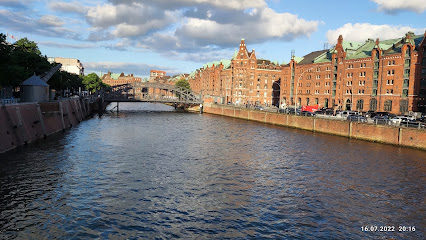
Elbphilharmonie Hamburg
Experience Hamburg's architectural and musical masterpiece: the Elbphilharmonie, a stunning concert hall offering breathtaking views and world-class performances in a unique waterfront setting.
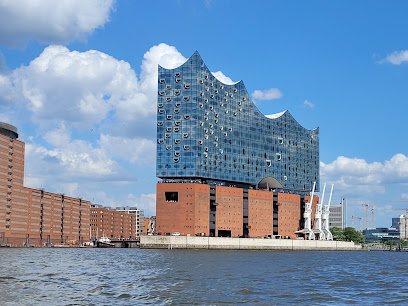
Alter Elbtunnel
Explore Hamburg's maritime history beneath the Elbe River in this early 20th-century engineering marvel, featuring vintage elevators and stunning city views from Steinwerder.
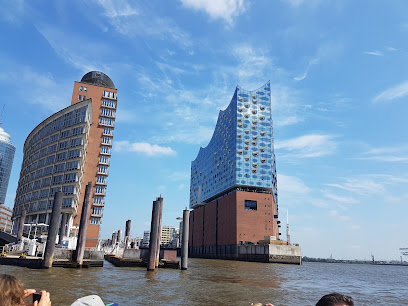
Planten un Blomen
Discover Planten un Blomen, Hamburg's green oasis: themed gardens, water-light concerts, and recreational activities in the heart of the city, offering year-round beauty and tranquility.

St. Michael's Church
Discover Hamburg's iconic St. Michael's Church: a Baroque masterpiece with panoramic views, rich history, and inspiring organ concerts in the heart of the city.

Hamburg Dungeon
Experience 600 years of Hamburg's dark history with live actors, thrilling rides, and immersive storytelling in the heart of the Speicherstadt, a unique blend of horror and humor.
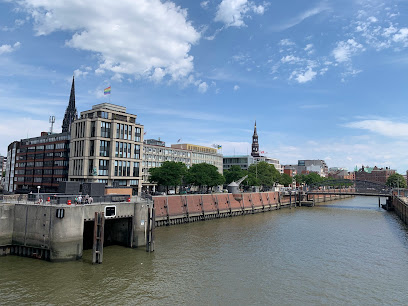
St. Nikolai Memorial
Explore the haunting ruins of St. Nikolai Memorial in Hamburg, a powerful WWII memorial offering panoramic city views and a poignant museum experience.
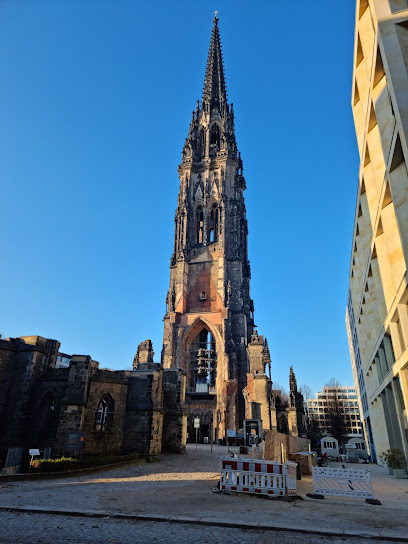
International Maritime Museum
Explore 3,000 years of seafaring history at Hamburg's International Maritime Museum, home to a vast collection of ships, artifacts, and interactive exhibits in a historic HafenCity warehouse.
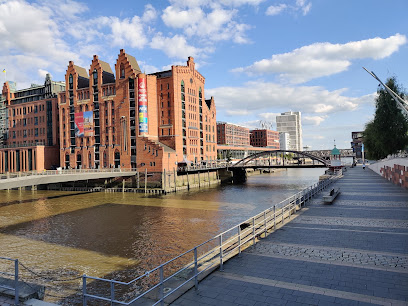
Hamburg Townhall
Discover Hamburg's majestic Town Hall: A Neo-Renaissance masterpiece, a symbol of Hanseatic pride, and the heart of Hamburg's vibrant history and self-governance.
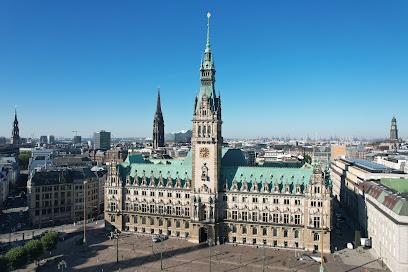
Altonaer Balkon
Experience Hamburg's maritime soul at Altonaer Balkon: panoramic harbor views, accessible paths, and iconic art await in this green oasis above the Elbe.
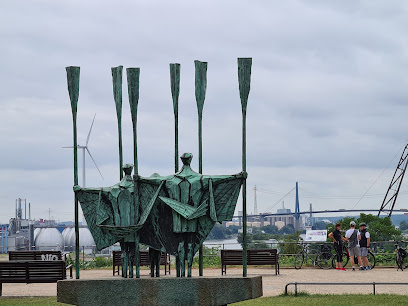
Treppenviertel Blankenese
Discover Hamburg's hidden gem: Explore the picturesque Treppenviertel Blankenese with its charming stairways, historic houses, and breathtaking views of the Elbe River, offering a unique Mediterranean flair.
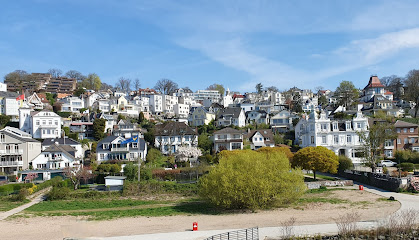
Rickmer Rickmers
Explore Hamburg's maritime history aboard the Rickmer Rickmers, a meticulously restored 1896 cargo sailing ship offering a captivating glimpse into the life of sailors and the age of windjammers.
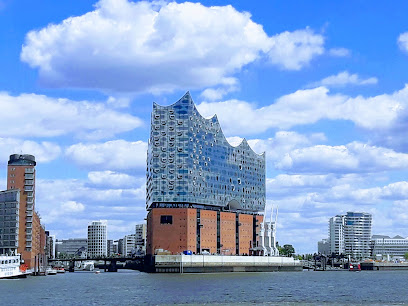
Chile House
Discover the iconic Chile House in Hamburg's Kontorhaus District, a UNESCO World Heritage Site showcasing stunning Brick Expressionist architecture and rich maritime history.
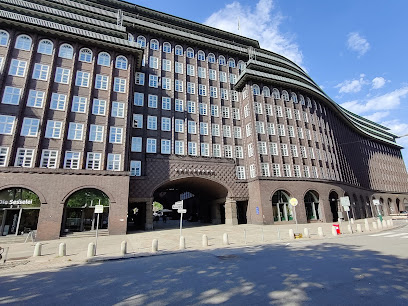
Museum of Art and Industry
Explore 4,000 years of art, craft, and design at Hamburg's Museum of Art and Industry, showcasing European, Asian, and Islamic treasures in a dynamic cultural hub near the Hauptbahnhof.
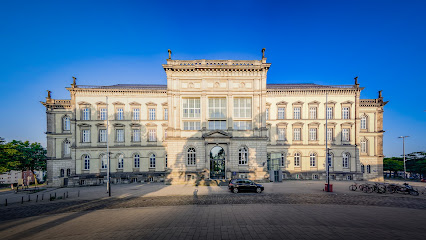
Speicherstadtmuseum
Explore Hamburg's historic Speicherstadtmuseum, a UNESCO World Heritage site, and discover the fascinating world of 19th-century trade and warehouse operations in the heart of the city.
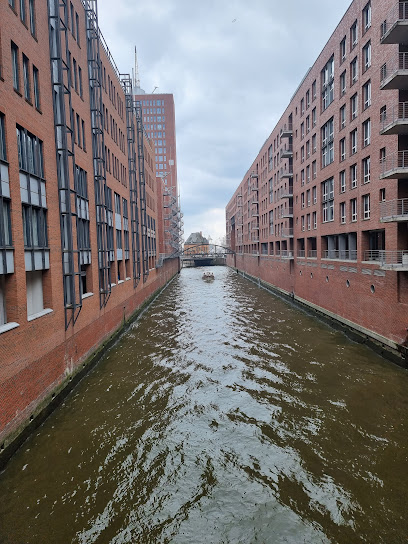
Unmissable attractions to see
Miniatur Wunderland
Explore the enchanting Miniatur Wunderland in Hamburg, the world's largest model railway showcasing intricate landscapes and magical scenes.
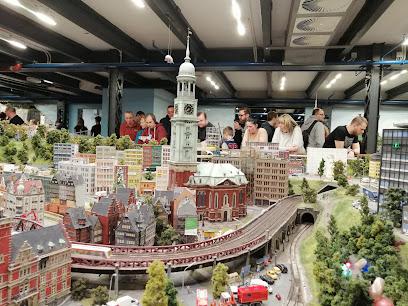
Elbphilharmonie Hamburg
Experience Hamburg's iconic Elbphilharmonie, blending world-class music, stunning architecture, and breathtaking views of the Elbe River.

Alter Elbtunnel
Discover the Alter Elbtunnel, a historic marvel in Hamburg, where engineering meets breathtaking views along the Elbe River.
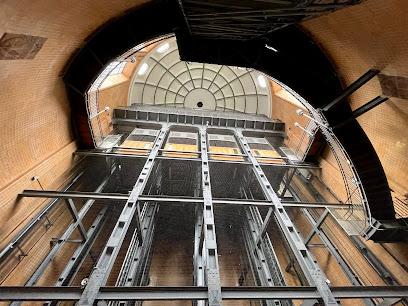
Planten un Blomen
Discover the beauty of Planten un Blomen, a lush park in Hamburg featuring stunning gardens, serene lakes, and vibrant cultural activities.
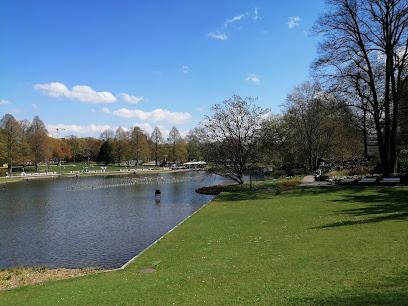
St. Pauli Piers
Discover the charm of St. Pauli Piers, a lively waterfront attraction in Hamburg, offering stunning views, delicious cuisine, and rich maritime history.
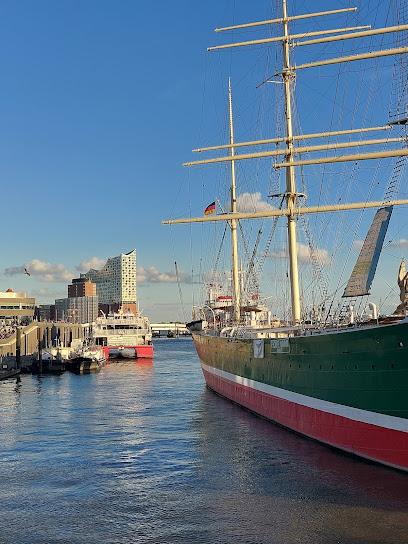
St. Michael's Church
Explore the stunning architecture and rich history of St. Michael's Church in Hamburg, a cultural and spiritual landmark with breathtaking views.

Stadtpark
Discover the beauty of Stadtpark, Hamburg's lush green haven filled with recreational activities, cultural attractions, and serene landscapes.
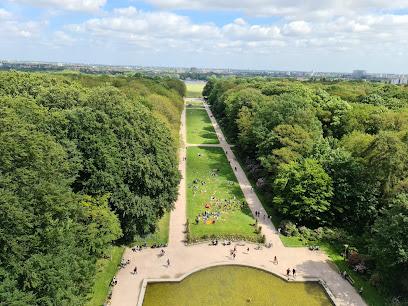
Hamburg Dungeon
Discover the thrilling tales of Hamburg’s dark history at the Hamburg Dungeon, where live performances and special effects create an unforgettable adventure.
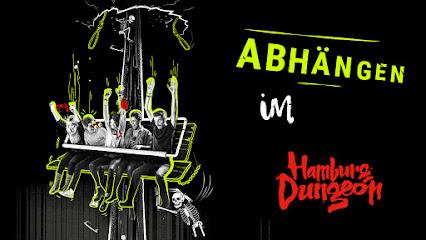
Schmidts Tivoli
Discover Schmidts Tivoli, Hamburg's iconic performing arts theater, offering an unforgettable blend of comedy, children's shows, and live music.
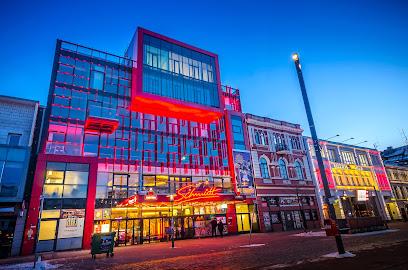
Theater im Hafen
Experience the magic of theater in Hamburg at Theater im Hafen, home to spectacular performances and breathtaking views of the harbor.
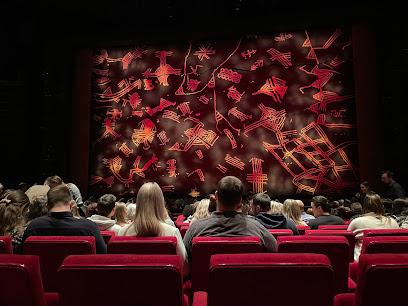
Panoptikum
Explore the fascinating Panoptikum in Hamburg, home to lifelike wax figures of historical icons and modern celebrities for an unforgettable experience.
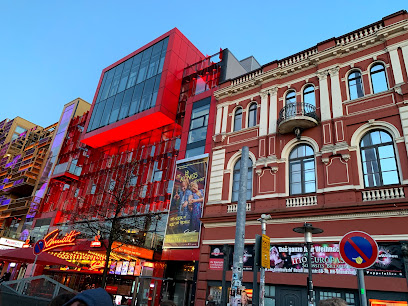
Hamburger Kunsthalle
Explore the Hamburger Kunsthalle, Hamburg's premier art museum, showcasing timeless masterpieces and contemporary works in a stunning architectural setting.
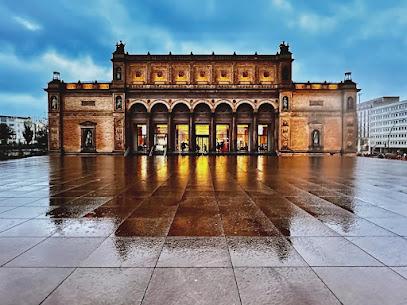
Millerntor-Stadion
Experience the passion of German football at Millerntor-Stadion, a cultural landmark in Hamburg, blending sports, food, and community spirit.
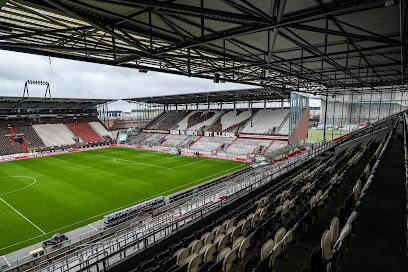
Operettenhaus
Discover the Operettenhaus in Hamburg, a cultural gem offering captivating performances in the heart of the city, perfect for theater enthusiasts and tourists alike.
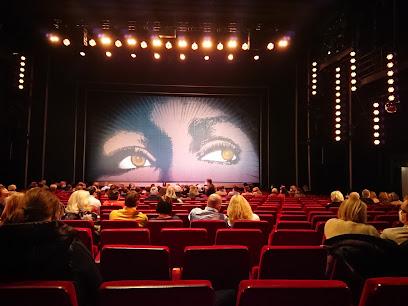
Hamburg Cruise terminal
Experience the charm of the Hamburg Cruise Terminal, your gateway to unforgettable journeys and the vibrant culture of Germany's maritime city.
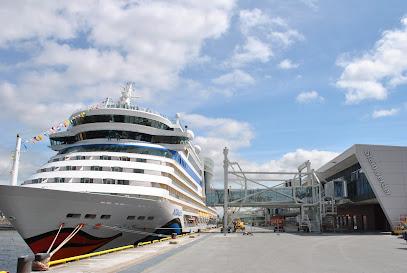
Essential places to dine
Bullerei
Discover the vibrant culinary scene at Bullerei in Hamburg – where modern German cuisine meets a lively atmosphere.
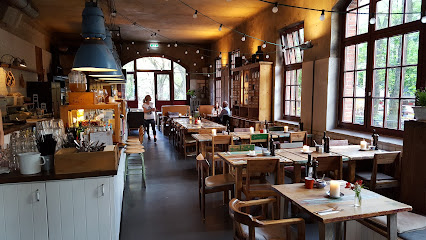
Heimathafen
Discover authentic German flavors at Heimathafen, where traditional cuisine meets vibrant atmosphere in the heart of Hamburg.
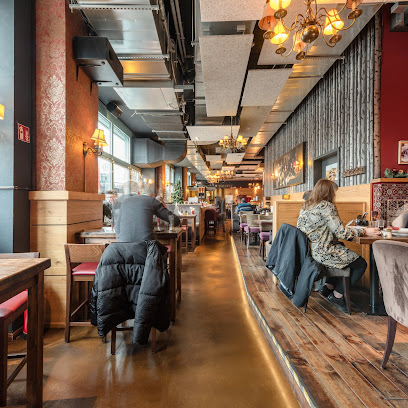
Erika's Eck
Discover authentic European cuisine at Erika's Eck in Hamburg – where delicious flavors meet welcoming ambiance.
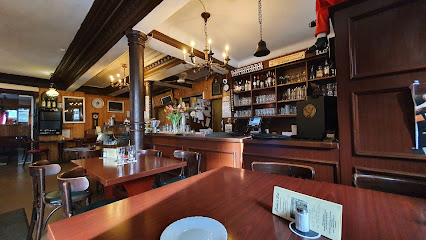
Fischereihafen Restaurant
Discover Hamburg's finest seafood at Fischereihafen Restaurant with fresh dishes and stunning river views.
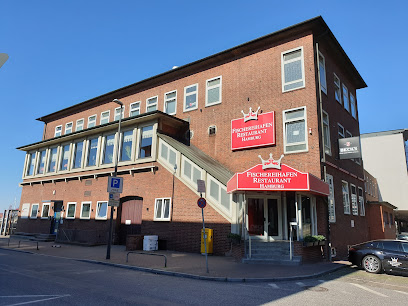
Schönes Leben Speicherstadt
Experience authentic German cuisine at Schönes Leben Speicherstadt amidst Hamburg's stunning historic waterfront.
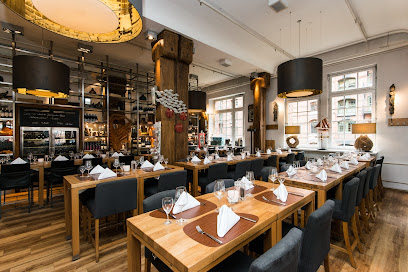
Restaurant Kartoffelkeller
Discover authentic German cuisine at Restaurant Kartoffelkeller in Hamburg - where tradition meets flavor in every dish.
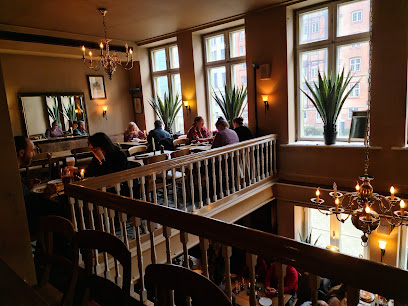
Restaurante Español Picasso
Experience authentic Spanish cuisine at Restaurante Español Picasso in Hamburg—where every dish tells a story.
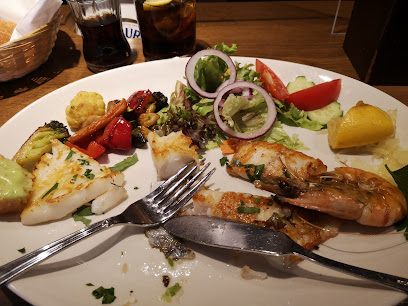
Caramba Especial
Savor authentic Portuguese and Spanish cuisine at Caramba Especial in Hamburg – where every dish tells a story.
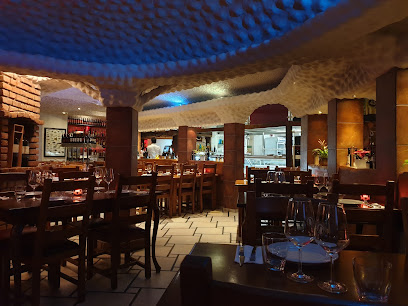
NENI Hamburg
Discover the vibrant flavors of Israeli cuisine at NENI Hamburg – where culinary tradition meets modern flair in an unforgettable dining experience.
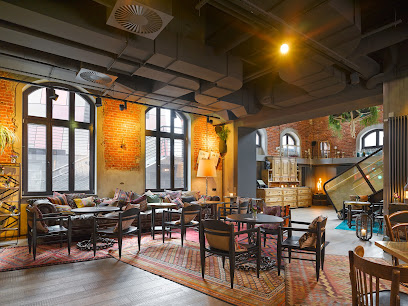
[m]eatery restaurant & botanist bar Hamburg
Discover the best steak in Hamburg at [m]eatery restaurant & botanist bar - where exquisite flavors meet vibrant ambiance.
![[m]eatery restaurant & botanist bar Hamburg](https://evendo-location-media.s3.amazonaws.com/RestaurantImages/152e3fd9-f3c9-4d43-8925-1248cf501029)
Krameramtsstuben
Discover Krameramtsstuben: A charming restaurant in Hamburg offering authentic European cuisine and an extensive wine selection amidst rich cultural heritage.
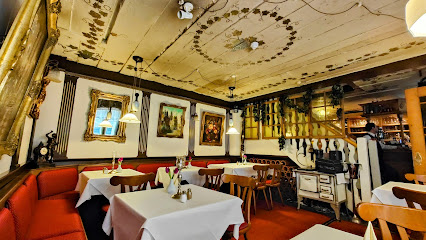
Restaurant Parlament Hamburg
Experience authentic German cuisine in the historic ambiance of Restaurant Parlament Hamburg.
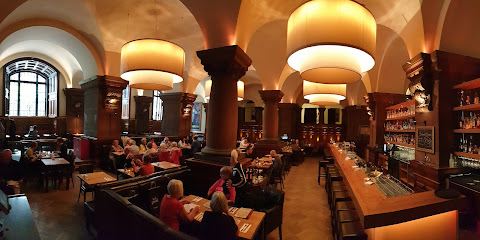
Old Commercial Room
Experience authentic German cuisine at Hamburg's historic Old Commercial Room – where tradition meets taste.
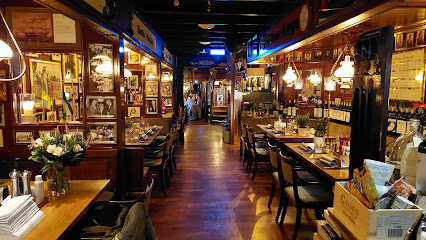
Hamburger Elbspeicher
Experience exquisite seafood dining at Hamburger Elbspeicher in Hamburg, where fresh flavors meet stunning riverside views.
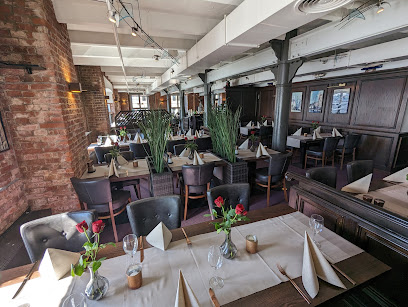
The Village - Best Wiener Schnitzel and other delicacies
Discover The Village - A Culinary Gem in Hamburg Serving Authentic Wiener Schnitzel and Exquisite German-Austrian Delicacies.
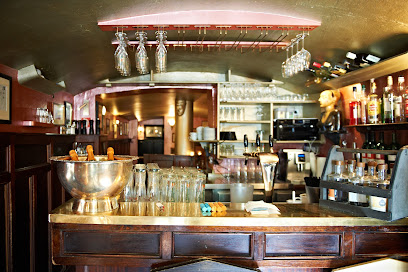
Markets, malls and hidden boutiques
Europa Passage
Discover the vibrant shopping experience at Europa Passage in Hamburg, featuring over 120 stores and a variety of dining options.
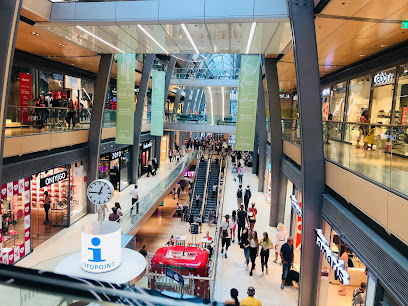
Alsterhaus
Discover luxury shopping at Alsterhaus, Hamburg's premier department store featuring top fashion brands and an elegant shopping experience.
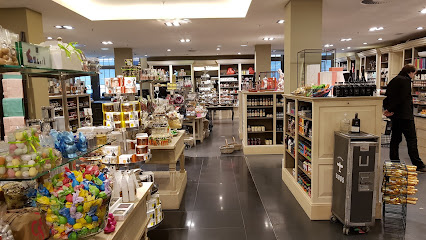
Hanseviertel
Discover Hanseviertel: Hamburg's premier shopping mall blending boutique stores, eateries, and a vibrant cultural atmosphere.
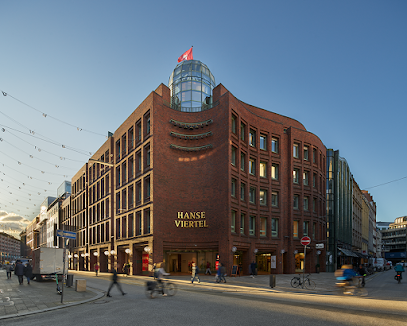
Wandelhalle Hamburg
Discover the vibrant shopping experience at Wandelhalle Hamburg, where modern retail meets cultural events in the heart of the city.
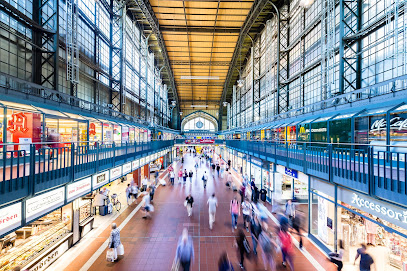
Elbenwald
Experience the magic of Elbenwald, Hamburg's ultimate destination for fantasy gifts, clothing, and collectibles for every fan.
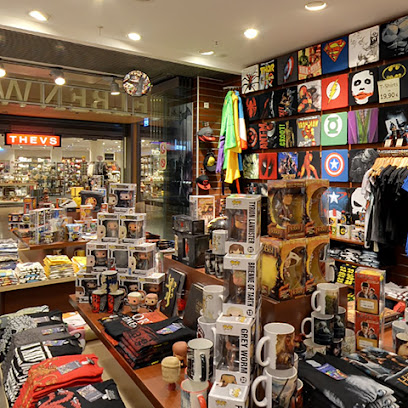
PICK WEIGHT - VINTAGE STORE KILO
Explore the charm of vintage fashion at PICK WEIGHT - Vintage Store Kilo, where unique finds await every fashion enthusiast in Hamburg.

Colors Shop Hamburg Gothic Punk Rockabilly & Boots
Discover unique Gothic, Punk, and Rockabilly fashion at Colors Shop Hamburg, where individuality and style collide in an eclectic shopping experience.
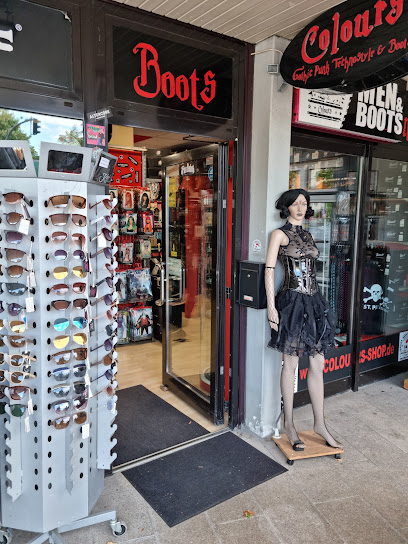
Urban Outfitters
Discover unique fashion and eclectic home goods at Urban Outfitters in the heart of Hamburg, your go-to destination for trendy shopping.
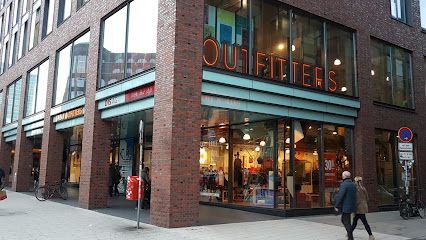
Vintage & Rags
Explore Vintage & Rags in Hamburg for a unique shopping experience filled with eclectic finds and sustainable fashion.
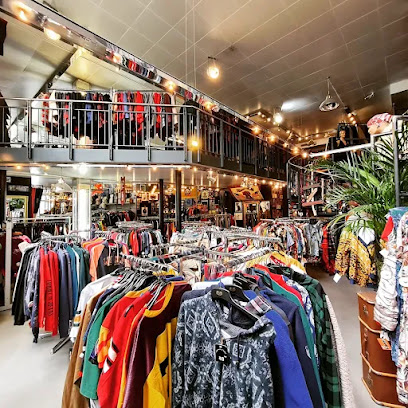
GALLERIA
Discover Galleria Hamburg: A luxurious shopping mall blending high-end fashion, delicious dining, and an elegant atmosphere in the heart of the city.
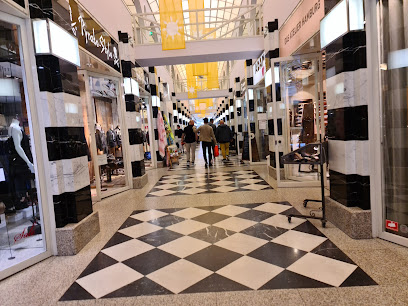
Montblanc Boutique Hamburg - Neuer Wall
Experience the epitome of luxury at Montblanc Boutique Hamburg, offering exquisite jewelry, leather goods, and fine stationery in a sophisticated setting.
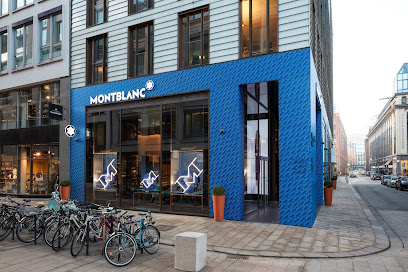
Kaufhaus Hamburg
Discover the charm of Kaufhaus Hamburg: a unique gift shop and art gallery showcasing local crafts and gourmet foods in the heart of Hamburg.

Gudrun Sjödén - concept store Hamburg
Explore Gudrun Sjödén's concept store in Hamburg for vibrant women's fashion, unique accessories, and a touch of sustainable style.
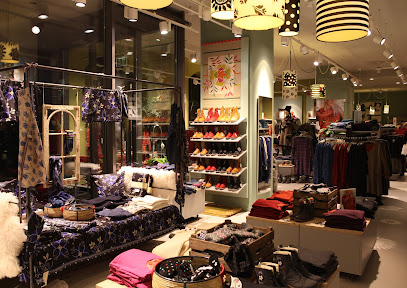
CHANEL BOUTIQUE HAMBURG
Explore the luxury and elegance of CHANEL Boutique Hamburg, where timeless fashion meets exquisite craftsmanship in a stunning shopping experience.
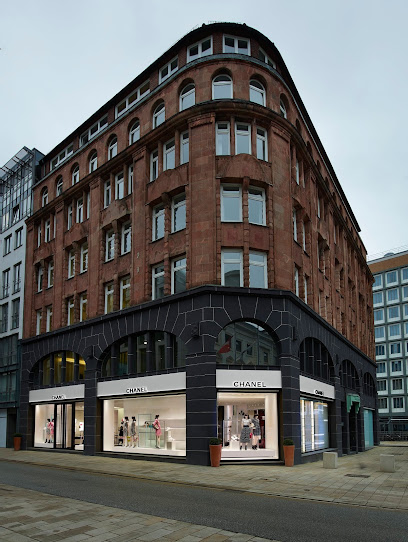
hessnatur Store Hamburg
Explore the hessnatur Store in Hamburg for sustainable fashion, offering stylish clothing and accessories for men, women, and children.
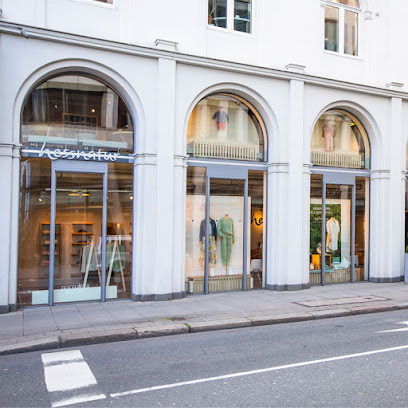
Essential bars & hidden hideouts
Skyline Bar 20up
Discover breathtaking views and exquisite drinks at Skyline Bar 20up, Hamburg’s premier cocktail and sushi bar perched above the city skyline.
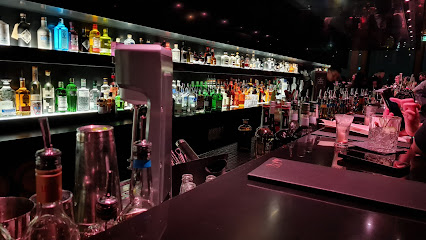
Le Lion • Bar de Paris
Experience the elegance of Parisian nightlife at Le Lion • Bar de Paris in Hamburg, where exquisite cocktails meet a luxurious atmosphere.
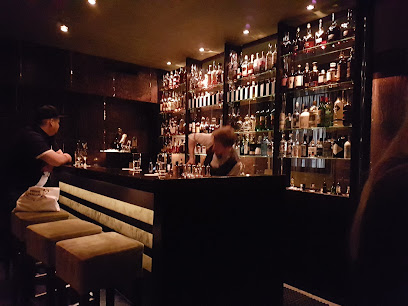
Fontenay Bar
Discover the elegance of Fontenay Bar in Hamburg, where exquisite cocktails and a sophisticated ambiance create the perfect evening getaway.

Meyer Lansky's
Discover the energetic spirit of Hamburg at Meyer Lansky's, where exquisite cocktails meet a lively atmosphere for an unforgettable night out.
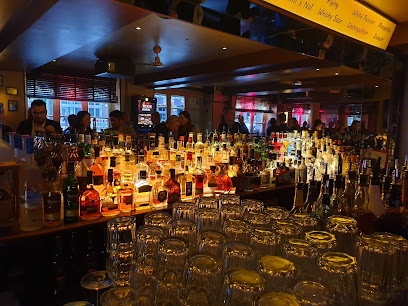
The Chug Club
Experience Hamburg's nightlife at The Chug Club, where innovative cocktails and a vibrant atmosphere await every visitor.
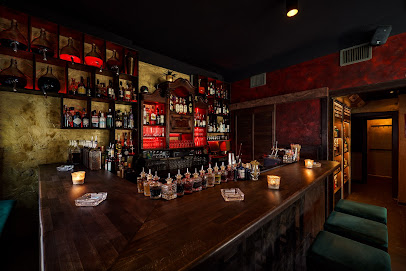
CIU` DIE BAR
Experience the vibrant atmosphere and exquisite cocktails at CIU´ DIE BAR in Hamburg, a must-visit destination for nightlife enthusiasts.
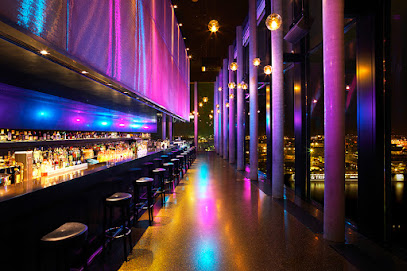
The Boilerman Bar Hafenamt
Discover The Boilerman Bar Hafenamt, Hamburg's premier cocktail bar, where innovative drinks and vibrant atmosphere await you.
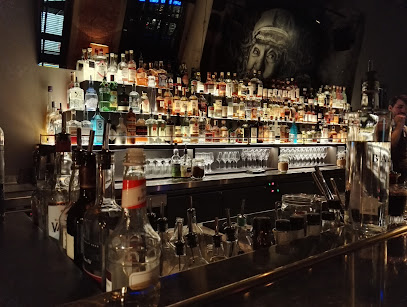
Roschinsky's - Bar
Discover Hamburg's nightlife at Roschinsky's Bar, a lively cocktail bar and nightclub offering a vibrant atmosphere and creative drinks.
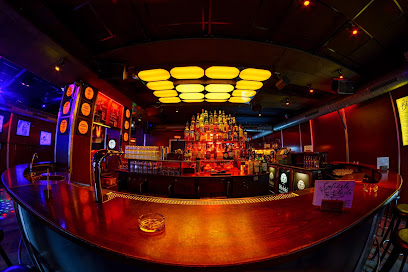
Tipsy Baker Bar Hamburg
Discover the best drinks and vibrant nightlife at Tipsy Baker Bar, Hamburg's favorite spot for cocktails and socializing.
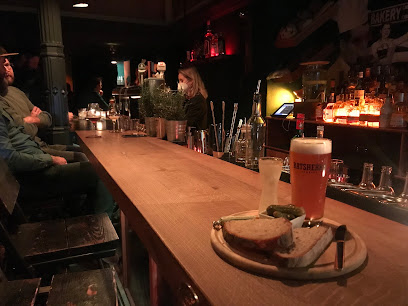
The Rabbithole Bar
Experience the magic of unique cocktails at The Rabbithole Bar, a charming cocktail haven in the heart of Hamburg's nightlife.
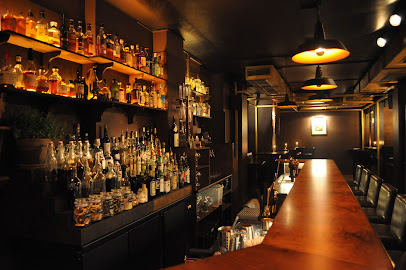
The Bohemian - Bar
Discover Hamburg's nightlife at The Bohemian, a cocktail bar renowned for its creative drinks and vibrant atmosphere.
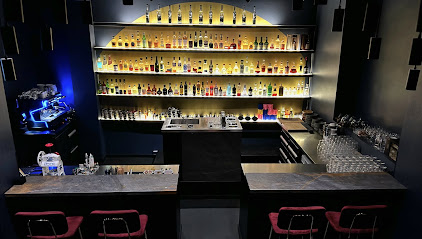
clockers
Experience the enchanting ambiance and innovative cocktails at Clockers, a premier bar in Hamburg's Altona district.
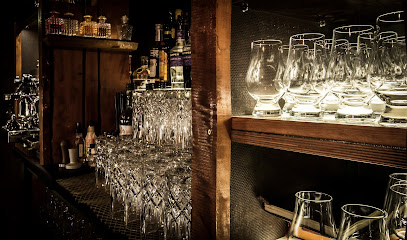
Gugu Bar
Experience Hamburg's vibrant nightlife at Gugu Bar, where cozy ambiance meets a fantastic drink selection for unforgettable evenings.
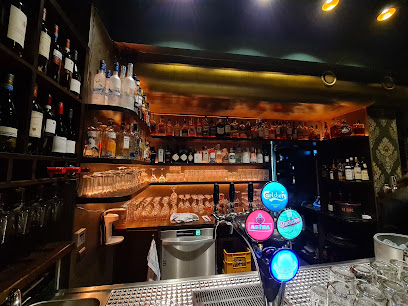
Liquid Garden - Cocktailbar
Discover the unique cocktails and vibrant atmosphere at Liquid Garden, Hamburg's top cocktail bar for an unforgettable night out.

Local Phrases
-
- HelloMoin
[moin] - GoodbyeTschüss
[chüss] - YesJa
[ya] - NoNein
[nine] - Please/You're welcomeBitte
[bit-te] - Thank youDanke
[dahn-keh] - Excuse me/SorryEntschuldigung
[ent-shool-dee-goong] - How are you?Wie geht es dir?
[vee gate es deer] - Fine. And you?Gut. Und dir?
[goot oont deer] - Do you speak English?Sprechen Sie Englisch?
[shpre-khen zee eng-leesh] - I don't understandIch verstehe nicht
[ikh fer-shtay-eh nikht]
- HelloMoin
-
- I'd like to see the menu, pleaseIch möchte bitte die Speisekarte sehen
[ikh merkh-te bit-te dee shpy-ze-kahr-te zay-en] - I don't eat meatIch esse kein Fleisch
[ikh es-se kine fli-sh] - Cheers!Prost!
[prohst] - I would like to pay, pleaseIch möchte bitte zahlen
[ikh merkh-te bit-te tsah-len]
- I'd like to see the menu, pleaseIch möchte bitte die Speisekarte sehen
-
- Help!Hilfe!
[hil-feh] - Go away!Geh weg!
[geh vehg] - Call the Police!Rufen Sie die Polizei!
[roo-fen zee dee poh-lee-tsay] - Call a doctor!Rufen Sie einen Arzt!
[roo-fen zee i-nen ahrts] - I'm lostIch habe mich verloren
[ikh hah-bee mikh fer-loh-ren] - I'm illIch bin krank
[ikh been krank]
- Help!Hilfe!
-
- I'd like to buy...Ich möchte ... kaufen
[ikh merkh-te ... kow-fen] - I'm just lookingIch schaue nur
[ikh sh-ow-eh noor] - How much is it?Wie viel kostet das?
[vee feel koh-stet das] - That's too expensiveDas ist zu teuer
[dahs ist tsoo toy-er] - Can you lower the price?Können Sie den Preis senken?
[ker-nen zee den price zehn-ken]
- I'd like to buy...Ich möchte ... kaufen
-
- What time is it?Wie spät ist es?
[vee shpayt ist es] - It's one o'clockEs ist ein Uhr
[es ist iyn oor] - Half past (10)Halb elf
[halb elf] - MorningMorgen
[mor-gen] - AfternoonNachmittag
[nahk-mit-tahk] - EveningAbend
[ah-bent] - YesterdayGestern
[gehs-tern] - TodayHeute
[hoy-teh] - TomorrowMorgen
[mor-gen] - 1Eins
[iyns] - 2Zwei
[tsvay] - 3Drei
[dry] - 4Vier
[feer] - 5Fünf
[fuhnf] - 6Sechs
[zeks] - 7Sieben
[zee-ben] - 8Acht
[ahkt] - 9Neun
[noyn] - 10Zehn
[tsayn]
- What time is it?Wie spät ist es?
-
- Where's a/the...?Wo ist ...?
[vo ist] - What's the address?Was ist die Adresse?
[vas ist dee ah-dreh-suh] - Can you show me (on the map)?Können Sie mir das zeigen (auf der Karte)?
[ker-nen zee meer das tsay-gen (owf dare kar-te)] - When's the next (bus)?Wann kommt der nächste (Bus)?
[van kohmt dare nikh-stuh (boos)] - A ticket (to ....)Ein Ticket (nach ...)
[iyn tee-ket (nakh)]
- Where's a/the...?Wo ist ...?
History of Hamburg
-
Hamburg was officially founded in 808 AD by Charlemagne. The city’s original name, Hammaburg, derives from the word 'Hamme' meaning 'meadow' and 'burg' meaning 'fortress.' Its strategic location along the Elbe River made it an essential trading post and fortified settlement.
-
In the 13th century, Hamburg became a key member of the Hanseatic League, a powerful economic and defensive alliance of merchant guilds and market towns in Northwestern and Central Europe. This affiliation brought wealth and prosperity to the city, establishing it as a major center for trade and commerce.
-
One of the most significant events in Hamburg's history was the Great Fire of 1842. The fire broke out on May 5th and lasted for three days, destroying about a third of the city, including approximately 1,700 buildings. The reconstruction that followed led to modern urban planning and the establishment of the city’s characteristic grid layout.
-
During the Industrial Revolution, Hamburg’s port underwent significant expansion, turning it into one of the busiest ports in Europe. The construction of the Speicherstadt, a large warehouse district built on timber-pile foundations, began in 1883 and was completed in 1927. This development solidified Hamburg’s importance as a global trading hub.
-
Hamburg was heavily bombed during World War II, particularly during Operation Gomorrah in July 1943. The city suffered extensive damage; thousands of buildings were destroyed, and tens of thousands of lives were lost. The post-war reconstruction shaped much of Hamburg’s modern architecture and urban landscape.
-
After World War II, Hamburg was rebuilt with a focus on modernity and economic recovery. The city continued to develop its port and became an important center for media and publishing. The establishment of the University of Hamburg in 1919 also contributed to its cultural and educational prominence.
-
In recent decades, Hamburg has experienced a cultural renaissance. The opening of the Elbphilharmonie concert hall in 2017 marked a new era for the city’s cultural scene. Hamburg is now known for its vibrant arts, music, and culinary scenes, attracting visitors from around the world.
Hamburg Essentials
-
Hamburg is well-connected to the rest of the world through the Hamburg Airport (HAM), which is located approximately 8.5 kilometers north of the city center. The airport offers numerous international and domestic flights. You can reach the city center from the airport via the S-Bahn (S1 line), which takes around 25 minutes. Alternatively, taxis and ride-sharing services are available. Hamburg is also accessible by train, with the Hamburg Hauptbahnhof (central station) being a major hub for Deutsche Bahn (DB) services. If you prefer driving, Hamburg is connected to several major highways (Autobahnen), and there are long-distance bus services as well.
-
Hamburg boasts an efficient public transportation system, including buses, trams, ferries, and the U-Bahn (subway) and S-Bahn (commuter train) networks. The HVV (Hamburger Verkehrsverbund) operates this network, and tickets are valid across all modes of transport. Day passes and group tickets offer good value. Biking is another popular way to get around, with many bike rental services and dedicated bike lanes throughout the city. Taxis and ride-sharing services are readily available, and for those who prefer driving, car rental services are plentiful.
-
The official currency in Hamburg, as in the rest of Germany, is the Euro (EUR). Credit and debit cards are widely accepted in hotels, restaurants, and shops, but it's advisable to carry some cash for smaller establishments or markets. ATMs (Geldautomaten) are ubiquitous, and you can use international cards to withdraw euros. Note that some places may not accept American Express, so having a Visa or Mastercard is recommended.
-
Hamburg is generally a safe city for tourists, but like any major urban area, it's wise to stay vigilant. Areas such as St. Pauli and the Reeperbahn are known for their nightlife and can be rowdy, especially at night. While these areas are popular with tourists, they also have higher instances of petty crime such as pickpocketing. It's advisable to avoid walking alone late at night in these neighborhoods. Keep your belongings secure and be mindful of your surroundings in crowded places.
-
In case of an emergency, dial 112 for medical emergencies or fire services, and 110 for police assistance. Hamburg has several hospitals with emergency departments, including the University Medical Center Hamburg-Eppendorf (UKE). Pharmacies (Apotheken) are well-distributed across the city, and many offer 24-hour services. It is recommended to have travel insurance that covers medical emergencies. For non-urgent health issues, numerous clinics and doctor's offices (Arztpraxen) are available.
-
Fashion: Do dress neatly; casual wear is acceptable, but avoid overly revealing clothing in more conservative areas. Religion: Do respect places of worship. When visiting churches, dress modestly and keep noise to a minimum. Public Transport: Do validate your ticket before boarding and have it ready for inspection. Don't eat or drink on public transport. Greetings: Do greet people with a firm handshake. It's customary to make eye contact during the greeting. Eating & Drinking: Do try local dishes like Fischbrötchen and Labskaus. Don't ask for tap water at restaurants; bottled water is the norm.
-
To experience Hamburg like a local, visit the weekly markets such as the Isemarkt or the Fischmarkt. Take a stroll around the Alster lakes or have a picnic in the Planten un Blomen park. For a unique experience, explore the HafenCity district, home to the impressive Elbphilharmonie concert hall. Enjoy a ferry ride on the Elbe River, which is part of the public transport network and offers great views of the harbor. Don't miss the local breweries and beer gardens for a taste of Hamburg's beer culture.
Trending Landmark in Hamburg
-
Miniatur Wunderland
-
Elbphilharmonie Hamburg
-
Alter Elbtunnel
-
Planten un Blomen
-
St. Michael's Church
-
Hamburg Dungeon
-
St. Nikolai Memorial
-
International Maritime Museum
-
Hamburg Townhall
-
Altonaer Balkon
-
Treppenviertel Blankenese
-
Rickmer Rickmers
-
Chile House
-
Museum of Art and Industry
-
Speicherstadtmuseum
Nearby Cities to Hamburg
-
Things To Do in Lubeck
-
Things To Do in Bremen
-
Things To Do in Hannover
-
Things To Do in Rostock
-
Things To Do in Sønderborg
-
Things To Do in Nyborg
-
Things To Do in Odense
-
Things To Do in Ribe
-
Things To Do in Næstved
-
Things To Do in Kolding
-
Things To Do in Slagelse
-
Things To Do in Groningen
-
Things To Do in Esbjerg
-
Things To Do in Munster
-
Things To Do in Vejle


















